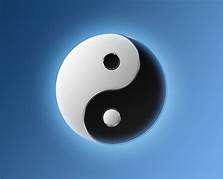
The United States has always been a pluralistic society, however in the past century large numbers of new immigrants have come from Mexico and Latin America, from the Asian and Far Eastern nations. Substantial numbers of Moslem's, Buddhists, and Hindus have been added in to the original mix which was primarily "Judeo-Christian." Greek and Roman pagan religious values have also been revived in America in recent decades.
In this century science moved towards an almost exclusive emphasis on the observable aspects of the material world---philosophical principles and spiritual realities have been played down or ignored. Most all of modern secular science today is actually scientism, a branch of secular humanism. Instead of giving nominal assent to, or at least tolerating a Biblical world view, the climate in our land is now antichristian.
Of course spiritual information is not accessible to the scientific method of systematic study and investigation in a manner that readily generates a consensus and a testable body of truth. Rationalism, naturalism, and materialism have left Western Man with an impoverished soul, as many modern philosophers note. Rejection of Biblical ideas and our so-called 'Judeo-Christian heritage' has increased the curiosity of some in alternate metaphysics and New Age thinking which is reintroducing intangible dimensions of existence. A few western scientists (Ref. 1) have looked to Eastern philosophy for further clues to push back the frontiers of physics. In accommodating today's 'secular pluralism' some scholars have said that one need not be not opposed to Eastern philosophy in preference to Western. Men like the late psychologist C.G. Jung believed that Eastern thought is a complementary way of looking at things, much as male and female persons perceive truth and set their priorities in different ways, both of which are valid.
Russia suffered 70 years under government imposed atheism until recently. The result was not only complete political, social and economic bankruptcy in that vast land, but an enormous spiritual vacuum developed. As is often said in science, "nature abhors a vacuum." So also the materialism, scientism and atheistic humanism that has dominated our country will sooner or later give way to a renewal of spiritual values. It is not likely that we will experience a "return" to the Christian values that held sway in the past. That is, unless God grants us a real revival of the church in our time.
But the Bible is actually an Oriental not an Occidental Book. Western Christianity has come to us filtered through Greek and Roman mind-sets. In our pursuit of Biblical wholeness for modern man it is appropriate that we look at the religious perspectives of the East. I have discussed the complementarity of Male and Female in a paper called Made in the Image of God . Could it also be that a similar complementarity can be found in Eastern and Western ways of perceiving reality? I think so.
After the Flood of Noah, Ham's grandson Nimrod built the first cities, including Babylon. Nimrod led the first organized revolt of mankind after the Flood, building the Tower of Babel and inventing what has come to be known as the "Babylonian Mystery Religion." Scholars have traced the spread of this religious system into three branch streams. One branch of the Babylonian Mystery Religion was taken to Egypt and became the Egyptian Mystery Religion (which was later to influence Free Masonry, Rosicrucianism and several New Age religions). A second branch of Babylonian religion was taken to ancient Pergamum and exported from there into the Etruscan Mystery Religion of Southern Europe. Many features of this branch of Babylonianism were incorporated in the Roman Catholic Church and into European culture where it has found its way into all branches of Western Christianity. The Third branch of the ancient religion of Babylon was incorporated in the vast world of Eastern pantheism. (Ref: The Two Babylons, by Alexander Hislop)
Pantheism (from the Greek pan meaning "all" or "everything") is the belief that everything that exists is God or an extension of God. God is not separate and transcendent from his creation, as in the Biblical world-view. Hinduism and Buddhism teach that mankind has lost its connectedness and awareness of our own godhood and suffering is the result. Self-realization in various Eastern religions is the discovery that "I am God" "You are God" "All of us are God." The burgeoning New Age philosophies found everywhere in America today incorporate forms of imported Hinduism. But, one of the greatest failures of a pantheistic world- view is that moral values are rendered highly relative. Good and evil are both manifestations of the All. Reincarnation replaces the Biblical doctrine of one individual lifetime and judgment by a Holy God to follow this life. Hinduism incorporates astrology and is actually polytheistic. All other religions can be incorporated into a Hindu world view. All religious leaders, including Christ, are merely men who have overcome their sense of separateness from the ground of all being and thus become Avatars, or Saviors and Wise Teachers.
Any number of excellent books on comparative religion are available today. Modern-world men and women owe it to themselves to become acquainted with other world religions, if only so that they can better understand what they as Christians really believe. Ignorance of the belief systems of others tends to bigotry and intolerance and makes us poor witnesses when we meet those of "foreign" faiths in our pluralistic society. There is some truth in every religion and light from God floods into all the dark corners of man's experience. Though there is but one way to God, according to Jesus, there are many ways to come to Jesus as the Messiah.
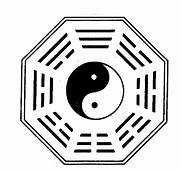

"The LORD is high above all nations, and his glory above the heavens! Who is like the LORD our God, who is seated on high, who looks far down upon the heavens and the earth?" (Psalm 113:4-6)
"Who has measured the waters in the hollow of his hand and marked off the heavens with a span, enclosed the dust of the earth in a measure and weighed the mountains in scales and the hills in a balance? Who has directed the Spirit of the LORD, or as his counselor has instructed him? Whom did he consult for his enlightenment, and who taught him the path of justice, and taught him knowledge, and showed him the way of understanding? Behold, the nations are like a drop from a bucket, and are accounted as the dust on the scales; behold, he takes up the isles like fine dust. Lebanon would not suffice for fuel, nor are its beasts enough for a burnt offering. All the nations are as nothing before him, they are accounted by him as less than nothing and emptiness. To whom then will you liken God, or what likeness compare with him?" (Isaiah 40: 12-18) "For my thoughts are not your thoughts, neither are your ways my ways, says the LORD. For as the heavens are higher than the earth, so are my ways higher than your ways and my thoughts than your thoughts." (Isaiah 55:8,9)
"For thus says the high and lofty One who inhabits eternity, whose name is Holy: "I dwell in the high and holy place, and also with him who is of a contrite and humble spirit, to revive the spirit of the humble, and to revive the heart of the contrite." (Isaiah 57:15).
The immanence of God means that He is present everywhere (omnipresent). God is also personal, one can not hide from Him. King David says,
"O LORD, thou hast searched me and known me! Thou knowest when I sit down and when I rise up; thou discernest my thoughts from afar. Thou searchest out my path and my lying down, and art acquainted with all my ways. Even before a word is on my tongue, lo, O LORD, thou knowest it altogether. Thou dost beset me behind and before, and layest thy hand upon me. Such knowledge is too wonderful for me; it is high, I cannot attain it. Whither shall I go from thy Spirit? Or whither shall I flee from thy presence? If I ascend to heaven, thou art there! If I make my bed in Sheol, thou art there! If I take the wings of the morning and dwell in the uttermost parts of the sea, even there thy hand shall lead me, and thy right hand shall hold me. If I say, "Let only darkness cover me, and the light about me be night," even the darkness is not dark to thee, the night is bright as the day; for darkness is as light with thee. For thou didst form my inward parts, thou didst knit me together in my mother's womb. I praise thee, for thou art fearful and wonderful. Wonderful are thy works! Thou knowest me right well; my frame was not hidden from thee, when I was being made in secret, intricately wrought in the depths of the earth. Thy eyes beheld my unformed substance; in thy book were written, every one of them, the days that were formed for me, when as yet there was none of them." (Psalm 139:1-16)
Clearly a sense of wholeness for the Christian should include a balanced sense of God's "otherness," his majesty, ineffable holiness, sovereign power and inscrutability, "how unsearchable are his judgments and his ways beyond discovering," Paul writes in Romans. To see God as lofty, holy, justice and all-powerful is to see oneself in proper perspective, "If anyone thinks he is something when he is nothing, he deceives himself and the truth is not in him." Proper awe and worship are inspired by balanced teaching about the transcendence of God.
Identifying God as if he were merely "one of us" or simply a Force behind nature or a remote impersonal Great Intelligent is to move far from a Biblical view of the awe-some-ness of the God of the Bible.
Yet God's home is the human heart,
"Do you not know that your body is a temple of the Holy Spirit within you, which you have from God? You are not your own; you were bought with a price. So glorify God in your body." (1 Corinthians 6:19, 20)
God is also a husband and intimate lover to his people,
"Therefore, behold, I (the LORD) will allure her (Israel), and bring her into the wilderness, and speak tenderly to her. And there I will give her vineyards, and make the Valley of Achor a door of hope. And there she shall answer as in the days of her youth, as at the time when she came out of the land of Egypt. "And in that day, says the LORD, you will call me, `My husband,' and no longer will you call me, `My Baal.' For I will remove the names of the Baals from her mouth, and they shall be mentioned by name no more. And I will make for you a covenant on that day with the beasts of the field, the birds of the air, and the creeping things of the ground; and I will abolish the bow, the sword, and war from the land; and I will make you lie down in safety. And I will betroth you to me for ever; I will betroth you to me in righteousness and in justice, in steadfast love, and in mercy. I will betroth you to me in faithfulness; and you shall know the LORD. "And in that day, says the LORD, I will answer the heavens and they shall answer the earth; and the earth shall answer the grain, the wine, and the oil, and they shall answer Jezreel; and I will sow him for myself in the land. And I will have pity on Not pitied, and I will say to Not my people, `You are my people'; and he shall say `Thou art my God.'" (Hosea 2:14-22)
God is a personal God. A frequent appellation for Him in the Bible is the intimate Hebrew word for "father," (Abba). Jesus Christ, who reconciled us to God invites us to be at home in His Father's house, the universe. "No longer do I call you servants for the servant does not know what his master is doing. Henceforth I call you friends." In a conversation with His disciple Philip, Jesus said, "He who has seen me has seen the Father." (John 14:9) By means of His incarnation, the Son of God has brought God the invisible Father down to our level making it possible for us to know the Father on an intimate, fully human level.

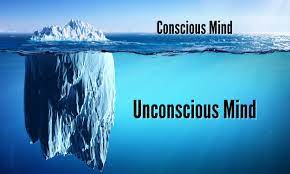
It might seem at first that concepts borrowed from Chinese philosophy would not be especially parallel to ideas found in the Scripture. However, there is evidence in the Chinese language that their earliest civilization (Ref 2) knew about Biblical (Old Testament) revelation. Most world religious and philosophical traditions contain some truth and shed lights on earlier periods when their peoples enjoyed greater enlightenment than they do now. Thus, it is sometimes helpful to examine Biblical truth from the starting point of kernels and concepts found outside the Christian tradition. Eastern philosophy in many ways does seem to complement a Western point of view and can be profitable to study since the Bible itself is more of an Oriental book than many in the West have supposed.

God does not prohibit our quest for knowledge except into the occult arts where we come too easily into bondage to what the Bible calls "the elemental principles (or spirits) of the world." As Christians we are prohibited from consulting fortunetellers, Tarot cards, Ouija boards, astrologers, or familiar ("channeling") spirits. The I Ching is fascinating even though we are not to use it as our guide book in making wise choices. It hints at harmony as well as disorder in life and shows the complexity of choices and the paradoxes we all face in making choices. James the brother of Jesus says there are two types of wisdom in the world one truth and the other false. However, mere knowledge is never enough to guide us along life's way, we need God's direct help and daily guidance as well as knowledge:
"Who is wise and understanding among you? By his good life let him show his works in the meekness of wisdom. But if you have bitter jealousy and selfish ambition in your hearts, do not boast and be false to the truth. This wisdom is not such as comes down from above, but is earthly, unspiritual, devilish. For where jealousy and selfish ambition exist there will be disorder and every vile practice. But the wisdom from above is first pure, then peaceable, gentle, open to reason, full of mercy and good fruits, without uncertainty and insincerity. And the harvest of righteousness is sown in peace by those who make peace." (James 3:13-18)
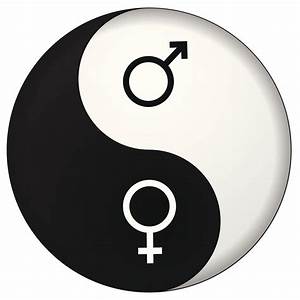

"The flowing stream is a key metaphor for Taoism. One is to 'flow with' the Tao, or life-principle of the universe. To be 'with it,' and not 'against the Tao,' is to be fulfilled. Not rigidity and aggressiveness, but flexibility and simple naturalness are encouraged. To 'get ahead' it is best to lie low and keep quiet. The curse of life is the many layers of artificiality of which cities are the symbol: the impersonal relationships; the dictated tastes of custom; the abstractions of bureaucracy and technological civilization. Wisdom resides with the simple, uncomplicated people who are close to the soil and who move with the rhythms of nature; not the wordy professors, the politically ambitious 'climbers,' and the scheming, overweight moneylenders. To live in harmony with the Tao---the really real---is the path to authenticity" (Ref. 2).
The Tao implies the principle that man can choose to live in harmony with God, with nature, and with himself so as to find peace of mind and inner wholeness, or he can elect the path of disharmony and destruction (Ref. 3). The Tao is impersonal in Chinese philosophy (since Taoism does not claim to be a religion); however the Christian equivalent to the path of harmony in life is the Biblical idea of the Sabbath rest. The writer of the letter to Hebrews (Chapt. 3-4) says, "whoever enters God's rest also ceases from his own labors (strivings) as God did from his" (Heb. 4:10). In the New Testament "the Way" is a Person, not a concept: Jesus said, "...I am the Way, and the Truth, and the Life; no one comes to the Father, but by me" (John 14:6). If then an individual is willing to come into partnership with Jesus, wholeness and peace with God (shalom) are the end result: "Come to me, all who labor (strive by self-effort) and are heavy laden, and I will give you rest. Take my yoke upon you, and learn from me; for I am gentle and lowly in heart, and you will find rest for your souls. For my yoke is easy, and my burden is light" (Matt. 11:28-30).

The well known symbol of the yin and yang, two fish encircling one another, is a picture of the complementary nature of the sexes, their need for one another and their interdependence. The two eyes of the fish show that even within the masculine there is some of the feminine, and vice versa. According to Chinese philosophy, harmony between the sexes is not only a problem for those who are married: half of life is best understood from the feminine point of view and the other half by the masculine both poles are needed to get at the whole "great mystery" of life. Complementary is a better word to use than opposites in describing the differences between the sexes remembering also that the Bible does teach equality of the sexes. The generic term man or brothers in Scripture unless otherwise stated means men and women because the two sexes are the same in spirit, the innermost core of our being. "But he who is united to the Lord becomes one spirit with Him" (I Corinthians 6:17) speaks of the believer's union with Christ whether that person is male or female. The yin/yang nature of things is apparently related to the creation of the first man, Adam, who was formed from the dust and became a living soul when God breathed the breath of life into his nostrils. At this point yin and yang were evidently in some sort of perfect union---Eve had not yet been taken out of Adam. Note added: C.S. Lewis has an excellent discussion of the Tao in his book, The Abolition of Man.

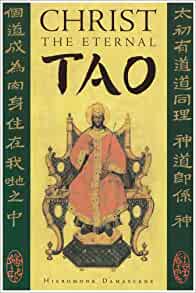
Although Adam named the animals (who were evidently already separately male and female), "...there was found no helper suitable for him. So the LORD God caused a deep sleep to fall upon the man, and while he slept took one of his ribs and closed up its place with flesh; and the rib which the LORD God had taken from the man he made into a woman and brought her to the man. Then the man said, 'This at last is bone of my bones and flesh of my flesh; she shall be called Woman, because she was taken out of Man'" (Genesis 2:21-23).<
Since the separation of the man Adam into two individuals took place before their fall, it is legitimate to suppose that perfect harmony originally prevailed between the man and the woman, and between each of them and their God. Surely they were functioning, for a season, in harmony with the creation God had given them to subdue and govern as stewards. We could say the Tao had been realized for both of them.

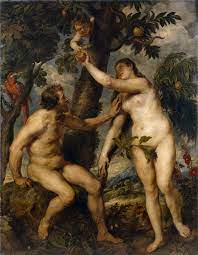
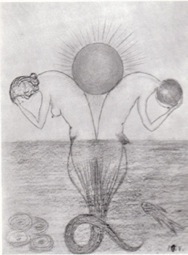
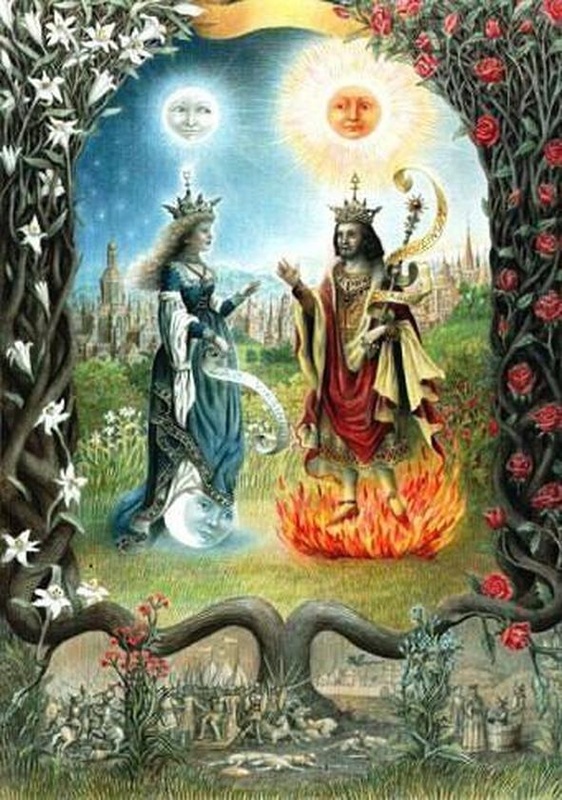
The fall of man was so total and so profound that nature itself was affected: death and decay began to spread through the universe and even certain laws of physics seem to have been affected. One of the most terrible consequences of the fall was the catastrophic dysfunction between the man and his wife, disrupting and distorting the previous harmony between yin and yang. Apart from God's intervening grace, this disruption would have been permanently fatal for the entire human race. The fall did not only throw into disarray the relationships between the man and the woman, their God, and all their offspring. It also affected Nature, causing disharmony, disorder, and decay. Nature was "subjected to futility." Thousands of years of human experience now vividly testifies to the complexity of the interrelationships between the sexes and even the great difficulty of achieving such things as a happy marriage without hard work and God's grace.
"Marriage is not comfortable and harmonious; rather, it is a place of individuation where a person rubs up against himself and against his partner, bumps against himself in love and in rejection, and in this fashion comes to know himself, the world, good and evil, the heights and the depths" (Ref. 5).
God's dealings with the man and his wife after their joint-fall reveal that there were serious consequences for the both of them and for the created order because they ate of the fruit of the tree of the knowledge of good and evil. However, God immediately gave them gracious new provisions and promises leading one day to a new creation, a new race, a new family of mankind. That new family would attain to higher, grander, and greater levels than the old creation could ever know. This possibility arises not only because of the provision of a Savior, but because fallen men and women would thereafter freely choose to love God, or freely choose to reject Him. Thus arises the awesomeness of free will which would make man more like His creator than ever before.
Various Bible commentators have noted that the finest and most marvelous attributes of God's Person cannot be manifested in an unfallen world. These include grace, mercy, forgiveness, justice, healing, and self-giving love. God did not cause the fall, but He allowed it; and even before creation, He planned to save and restore His creatures through His own suffering.
Surely the most helpful and wonderful book on masculinity and femininity in the whole Bible is the Song of Solomon. This great book of Hebrew poetry can be read and understood on at least three levels. First, it is a love story of a man and woman who grow and mature as their relationship progresses. Secondly, Jewish and Christian commentators have always acknowledged that the Song pictured Yahweh's love for Israel or Christ's love for His church. Watchman Nee in his commentary (Ref. 6) takes the view that the woman in the Song of Solomon typifies every individual believer, as well as the church collectively, and therefore gives us a picture of discipleship seen from an "interior" point of view. Thirdly, Solomon is a male Hebrew name derived from shalom, but Shulamite is a feminine name, also derived from shalom. Shalom in Hebrew means that peace which comes from being a whole person, to be at peace with God and with himself. Thus, we can consider that Solomon and Shulamite are the same person seen from two different points of view (one outward and one inward). The book is therefore a study of wholeness.
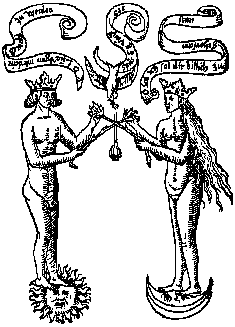
C.G. Jung's described the coniunctio oppositorum, or union of opposites, as the goal of individuation. Jung noted that the mysterium coniunctio, the relationship between yin and yang, can be true or false (Ref. 7). Jung did not hold to a Biblical view of evil, but he certainly struggled with evil as a reality in human affairs. In his own way, Jung attempted to understand how we all must come to terms with the masculine and feminine principles in life, and in God Himself, in order to be whole persons, whether we are single or whether we are married. The above woodcut, illustrative of Jungian thought, is from a medieval book, Rosarium Philosophorum Alchemiae de Lapide Philosophica, 1550. Jolande Jacobi in her book, The Psychology of C.G. Jung, (Yale University Press, London, New Haven, 1973) comments on this diagram as follows:
"The alchemical conception of one of the stages of the coniunctio. Here the 'king' and the 'queen,' who may be taken as Sol and his sister Luna, appear as symbols of the primordial psychic opposites, masculine and feminine. Their 'marriage' is meant primarily in the spiritual sense, as is clear not only by the words of the middle band spiritus est qui vivificat, but also by the dove as symbol of the spirit, and according to the ancients, amor coniugalis. The primordial opposites confront one another in their naked, unfalsified truth and essence, without conventional covering; the difference between them is evident and 'essential;' it can be bridged in fruitful union only through the intermediary of the spirit symbol, the dove, the 'unifier' which intervenes from 'above.' The branches held to form the cross, the flores mercurii, and the flower hanging down from the dove's beak---all these symbols of the process of growth illustrate the common effort of man and woman in the living work of the coniunctio.

After returning from the dead and ascending to heaven, Jesus and the Father sent the Holy Spirit into our world to put into effect a New Covenant for living, freely available to all by grace apart from works. Under this New Covenant (having greater and better promises than those contained in the Old Covenant), many Old Testament rules and regulations were set aside. Certain customs and traditions such as circumcision and keeping the Sabbath were discarded. But no change was made in the oldest human institution, marriage. In fact, the status of marriage is elevated in the New Testament because it is to be compared, as "a great mystery," with the relationship between Christ and His church. At this point, Christian theology goes even further beyond the limitations of Chinese philosophy as it has been handed down to us today. Jesus came to build a new race, and He came to take a Bride, the Second Eve. The marriage is not to be a physical one, but a spiritual one; and the Bride, not merely one woman. The bride is the church the company of those redeemed in this present age men, women, children numbering many millions. The relationship of Christ and His church transcends concepts as yin, yang, and the Tao.
The figure of the Bride of Christ is but one of Seven Figures of the church found in the New Testament. The church is also called the "Body of Christ," with Christ as the Head. The latter figure of the church is more or less a "masculine" picture of the church he church in its relationship outwardly to the world. When Jesus spoke of building His church He said, "...I will build my church, and the powers of death shall not prevail (be able to withstand) against it." (Matthew 16:18) The church is an invincible, conquering army in its outward activity in the world.
When the church gathers around the Lord, the object of her worship and devotion, she is the Bride of Christ, feminine in her submission, obedience, and responsiveness. Thus, the church is outwardly masculine but inwardly feminine and contains balanced attributes of both men and women, since both sexes constitute her membership rolls. The church, militant and triumphant, is properly described by a verse in the Song of Solomon describing the Shulamite in her maturity:
"Who is this who looks forth like the dawn, fair as the moon, bright as the sun, terrible as an army with banners." (Song of Solomon 6:10)
The sun is an ancient symbol of Christ, the greater light who rules the day, and the "sun of righteousness who comes with healing in its wings." The moon is a symbol of the church which is in itself barren and lifeless but rules the night by reflecting the light of the sun, "until the day breaks..."

"Sexuality, which penetrates our whole being, will not be expressed physically in the resurrection body, but it will have its expression at the soulish and the spiritual levels. God has a purpose for it in the life to come. That is why we are given physical sex. It is designed to teach us what we are like, who we are, what our role is, in the life to come. Male organs are external to emphasize, as one of the marvelous visual aids that God is always employing, that the male role is one of visible leadership. He is designed to take the initiative, and yet to do so with tenderness and gentleness...Female organs are internal, hidden, to indicate the role of women as being inwardly sensitive, far deeper emotionally than men, more subjective, contributing deeper insights than man ever does, having a greater sense of compassion, and responding to that which leads. All this is designed to teach us truth about our relationships with one another and with God himself. That is why, throughout the Scriptures, God appears in relationship to the Christian as the lover, the aggressor, the male. We are the bride, the responders, the followers, and that is consistent through the Scriptures" (Ref 8).
Some have inferred that the distinctions between the sexes would disappear in heaven since there we "...neither marry nor are given in marriage..." (Luke 20:35); however, the opposite is surely true: the differences will be enhanced and made more splendid. C.S. Lewis, among contemporary writers, makes this point clearly in his Science Fiction Trilogy and other works. One reason the delights and pleasures of heaven are at present denied us is that we are unable to avoid the excesses of legitimate joys and pleasures in our fallen condition and in this present world. Rather than enjoying a little wine, we are all too eager to drink to excess and lose self- control. Forgetting that God can only bless sexual expression in marriage, we ruin our lives with destructive, promiscuous behavior, and so on, preferring the "... pleasures of sin for a season" (Heb 11:25).
In heaven the restraints can be removed safely to allow us ecstatic pleasures without fear of sin. In such a state the differences between the sexes will be enhanced and completed:
"...Some kind of procession was approaching us, and the light came from the persons who composed it. First came bright Spirits, not the Spirits of men, who danced and scattered flowers soundlessly falling, lightly drifting flowers, though by the standards of the ghost-world (life as we know it now on earth) each petal would have weighed a hundred-weight and their fall would have been like the crashing of boulders. Then, on the left and right, at each side of the forest avenue, came youthful shapes, boys upon one hand, and girls upon the other. If I could remember their singing and write down their notes, no man who read that score would ever grow sick or old. Between them went musicians; and after these a lady in whose honour all this was being done. I cannot remember whether she was naked or clothed. If she were naked, then it must have been the almost visible penumbra of her courtesy and joy which produces in my memory the illusion of a great and shining train that followed her across the happy grass. If she were clothed, then the illusion of nakedness is doubtless due to the clarity with which her inmost spirit shone through the clothes. For clothes in that country are not a disguise: the spiritual body lives along each thread and turns them into living organs. A robe or a crown is there as much one with the wearer's features as a lip or an eye..." (Ref 9).
Introducing this fanciful picture of what heaven may be like, Lewis writes,
"You cannot take all luggage with you on all journeys; on one journey even your right hand and your right eye may be among the things you have to leave behind. We are not living in a world where all roads are radii of a circle and where all, if followed long enough, will therefore draw gradually nearer and finally meet at the centre: rather in a world where every road, after a few miles, forks into two, and each of those into two again, and at each fork you must make a decision. Even on a biological level life is not like a pool but like a tree. It does not move towards unity but away from it and the creatures grow further apart as they increase in perfection. Good, as it ripens, becomes more different not only from evil but from other good. I do not think that all who choose wrong roads perish; but their rescue consists in being put back on the right road. A wrong sum can be put right: but only by going back till you find your error and working it afresh from that point, never by simply going on. Evil can be undone, but it cannot 'develop' into good. Time does not heal it. The spell must be unwound, bit by bit, 'with backwards mutters of dissevering power' or else not. It is still 'either-or.' If we insist on keeping Hell (or even earth) we shall not see Heaven: if we accept Heaven we shall not be able to retain even the smallest and most intimate souvenirs of Hell. I believe, to be sure, that any man who reaches Heaven will find that what he has abandoned (even in plucking out his right eye) was precisely nothing: that the kernel of what he was really seeking even in his most depraved wishes will be there, beyond expectation, waiting for him in 'the High Countries'" (Ref 10).
Noted Christian author C.S. Lewis used the word Tao to describe "the doctrine of objective value, the belief that certain attitudes are really true, and others really false, the kind of thing the Universe is and the kind of things we are." He asserted that every religion and philosophy contains foundations of universal ethics as an attempt to line up with the Tao—the way mankind was designed to be. In Lewis' thinking, God created the Tao and fully displayed it through the person of Jesus Christ.
Also the Greek word used in the New Testament for the Way is ὁδός (hodos). Here the Way refers to the path of righteousness and salvation as revealed through Christ.
In Chinese translations of the New Testament, λόγος (logos) is translated with the Chinese word dao (道) (e.g. John 1:1), indicating that the translators considered the concept of Tao to be somewhat equivalent to logos in Greek philosophy.
(https://en.m.wikipedia.org/wiki/Tao)
* The descendants of Ham: Egyptians, Africans, Indians and Oriental peoples became far superior to Japhethites in their inventions and technological accomplishments. The Semitic peoples became specialists in religion. See Arthur Custance, The Sons of Noah (Zondervan) for a thorough discussion of these important differences between the three branches of the human race after the Flood of Noah.
![]()
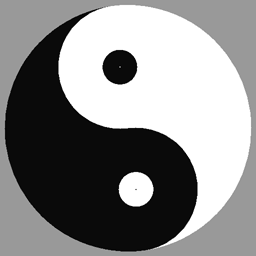
2. The Discovery of Genesis: How the Truths of Genesis Were Found Hidden in the Chinese Language, by C. H. Kang and Ethel R. Nelson, Concordia Press, St. Louis, 1979; Paul Clasper, Eastern Paths and the Christian Way (Orbis Books; Maryknoll, NY, 1982) and C. George Fry, James R. King, Eugene R. Swanger and Herbert C. Wolf, Great Asian Religions (Baker Book House; Grand Rapids, 1984).
3. Alan Watts, a former Episcopal priest who became a skillful teacher of Eastern religions and philosophy until his death in 1973, wrote lucidly for Western minds on these subjects. His book, Tao: The Watercourse Way (Pantheon Books; NY, 1975), is a good introduction to Taoism and Zen Buddhism. Watts was probably not a Christian.
4. Paul Jewett gives a thorough discussion of various possible models in his book, Man as male and female (Eerdmans; Grand Rapids, 1975).
5. Adolph Guggenbuhl-Craig, Marriage, Dead or Alive (Spring Publications; Zurich 1977).
6. Watchman Nee, Song of Songs (Christian Literature Crusade; Fort Washington PA., 1965).
7. Jolande Jacobi, The Psychology of C. G. Jung (Yale University Press; New Haven, 1973).
8. Ray C. Stedman, Expository Studies in I Corinthians.
9. The Great Divorce (Macmillan Press; NY 1946) pp. 106-107.
10. C.S. Lewis, Preface to The Great Divorce.
11. Chan Kei Thong with Charlene Fu, Faith of our Fathers: God in Ancient China, China Publishing Group Orient Publishing Center, Shanghai, China, 2006. Outstanding new book affirming the antiquity of the I Ching and the Biblical roots of life in the early history of China.
See also:

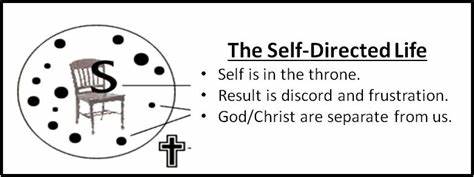
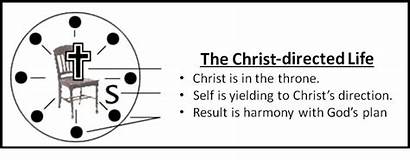

Lambert's Main Library
Email in welcome: Lambert Dolphin
Archive for Newsletters
Library Annex (since 2018)
March 8, 1991, Revised July 19, 1994, July 29, 1996. July 20, 2022. April 11, 2023.
